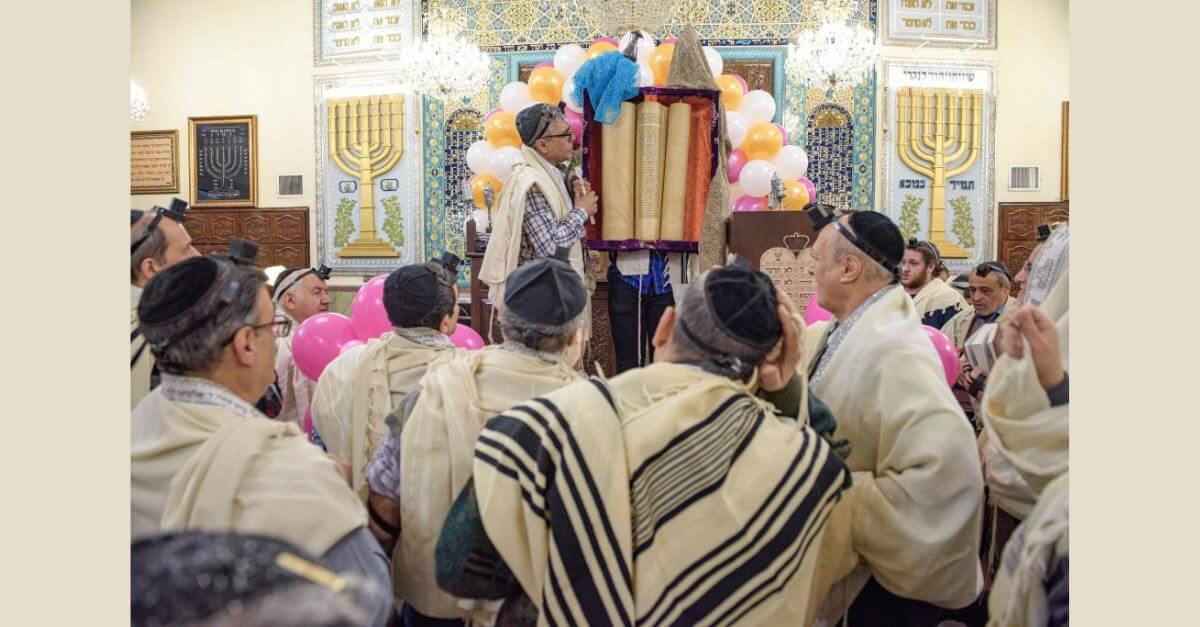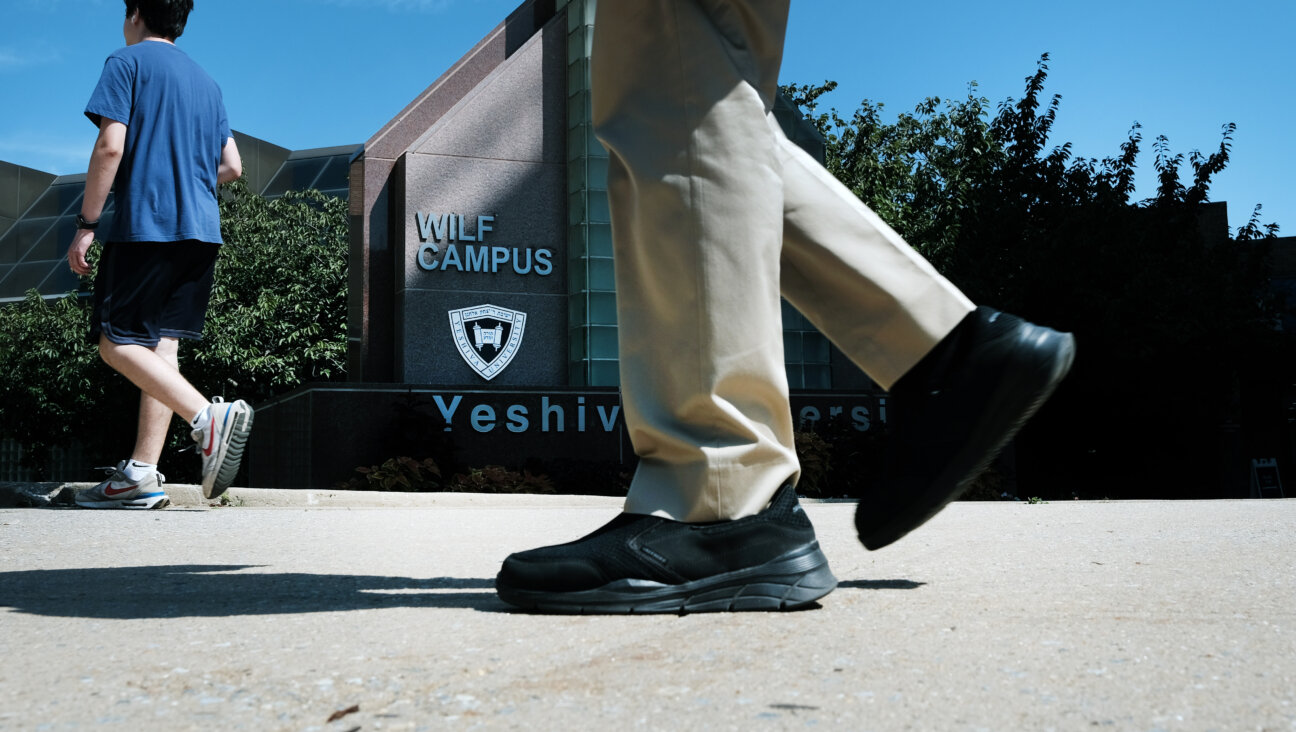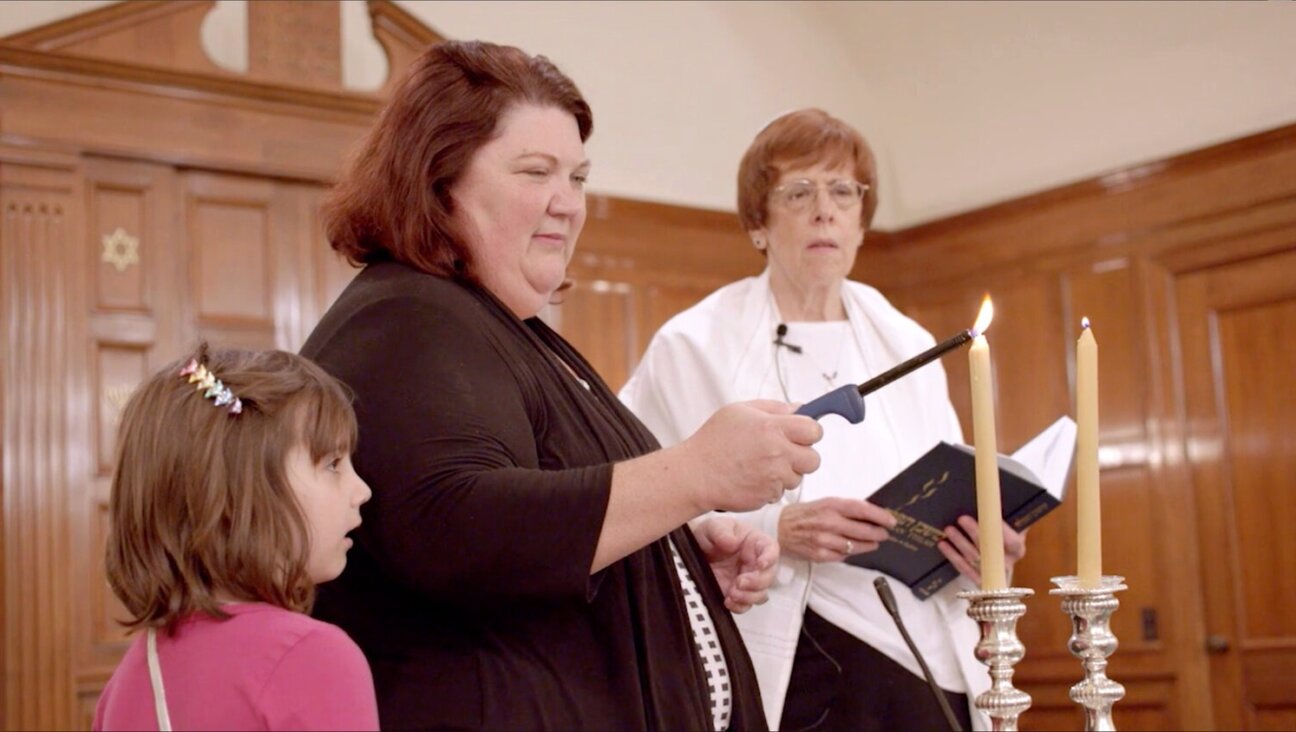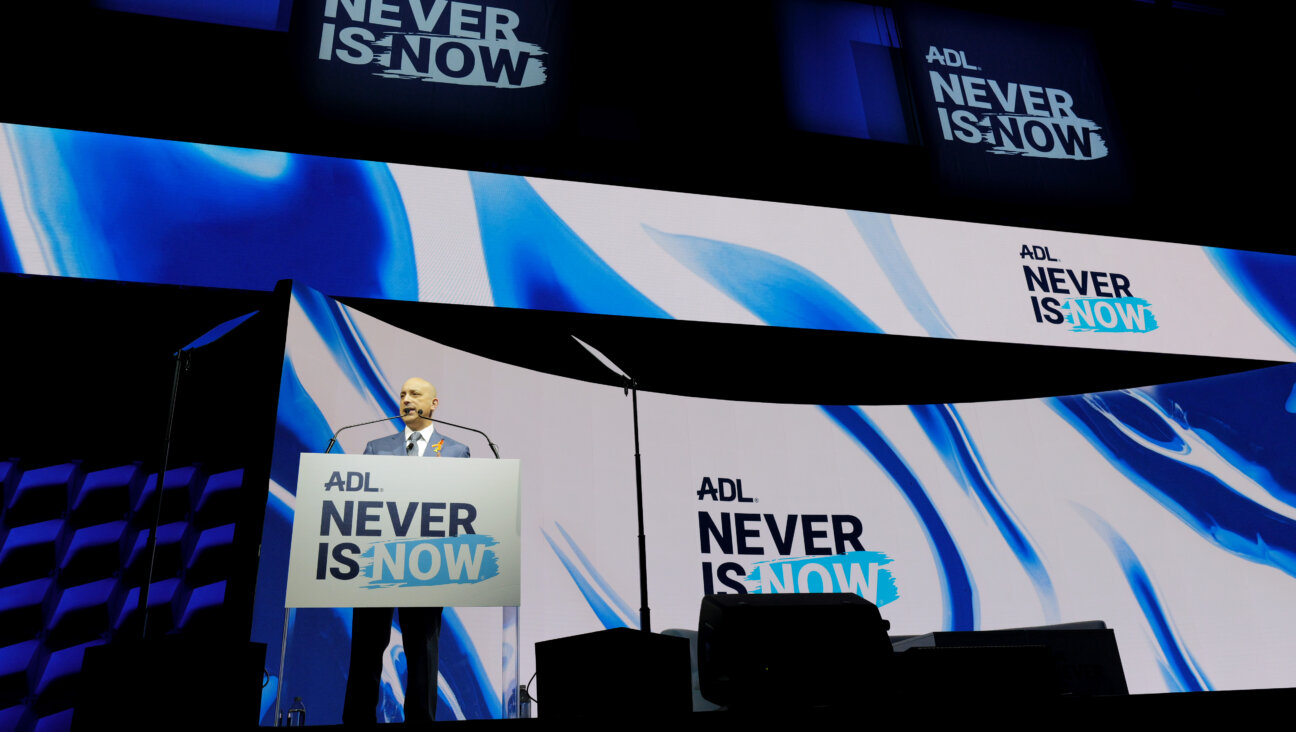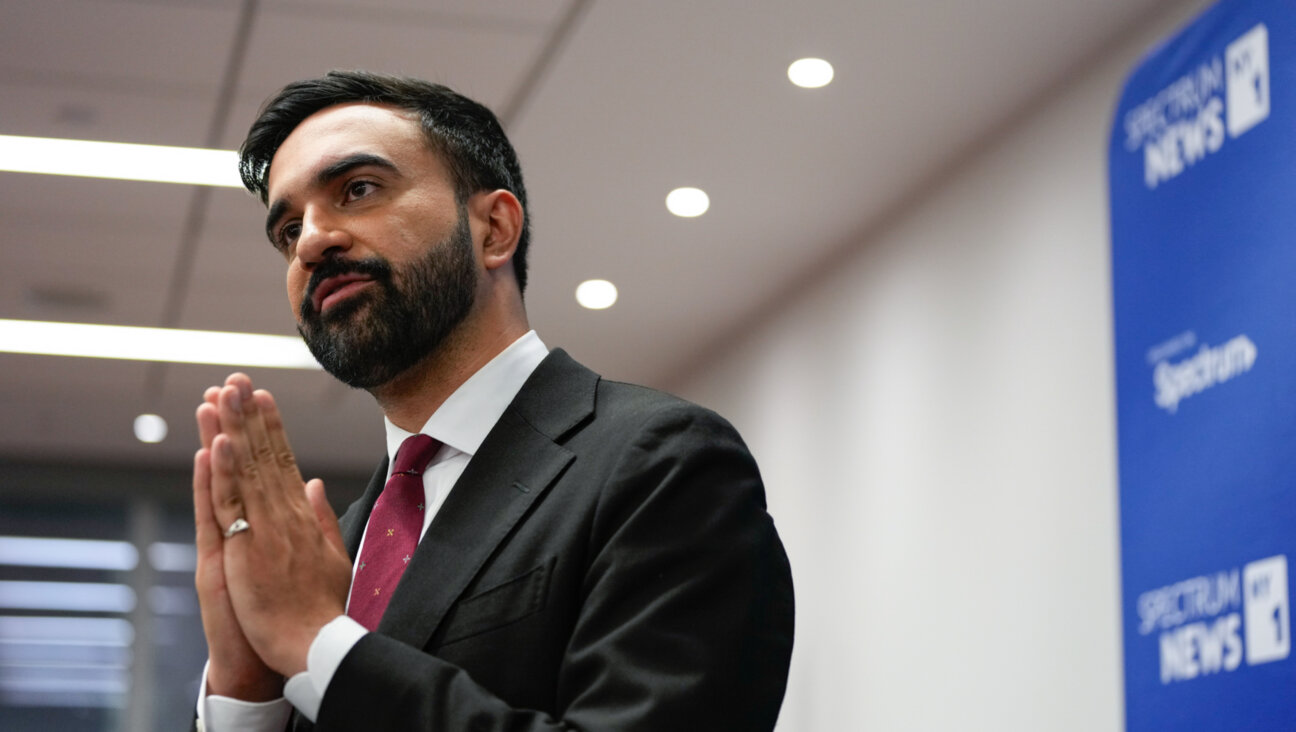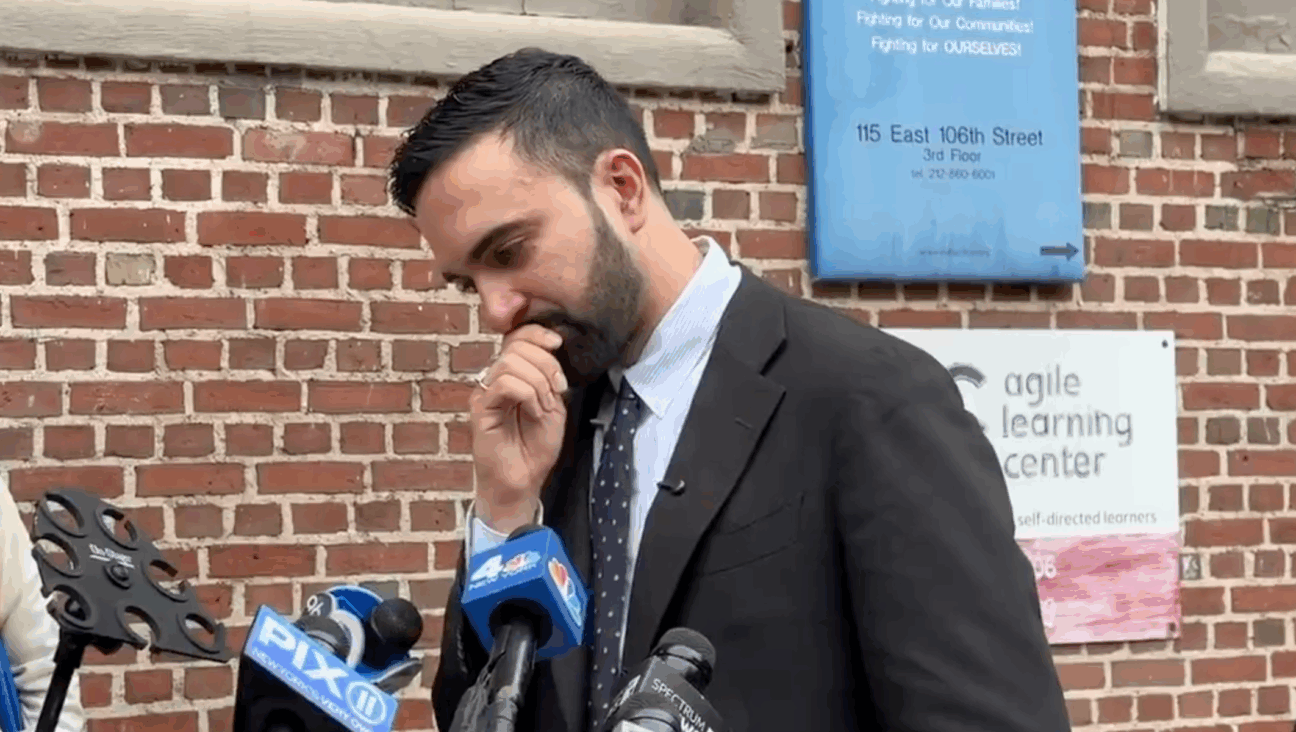Celebrating Easter Might Just Make You More Jewish

Image by Lily Padula
The Seesaw is a new kind of advice column in which a a broad range of columnists will address the real life issues faced by interfaith couples and families. Join the discussion by commenting on this post, sharing it on Facebook or following the Forward on Twitter. And keep the questions coming. You can email your quandaries, which will remain anonymous, to: [email protected]
When the Other Grandparents Celebrate Easter …
My daughter is not half of an interfaith couple; my son-in-law is a convert. How do I get my husband to accept that the other grandparents have a Christmas tree and celebrate Easter? My daughter and son-in-law have been married for seven years and have a one-year-old daughter. When I first commented that our granddaughter would be exposed to Christmas and Easter gatherings with the in-laws, my husband said “Not with MY granddaughter, they’re not!” Outside of the obvious response of “How are you planning to prevent that?”, how do I bring my husband along to a state of greater understanding and tolerance? — Keeping the Peace
Easter Might Make Her More Jewish

SCOTT PERLO: I remember riding bikes with my childhood best friend Greg Dunn – we were eight or nine at the time – when he asked me how Jews and Christians are different. I remember two things about my response: every answer I gave him was 100% wrong, and it was the first time that I understood that I would have to give words to describe who I am and why, as a Jew, I am different; it might have been my first truly adult moment.
Because we’re so concerned about keeping Jews Jewish, we give short shrift to the role of difference in defining a person’s Jewish identity. However, a lot of the people coming through my door discovered their need to explore their Judaism while in Thailand. It took yanking them from their comfortable “my family is Jewish but we don’t really talk about what it means, please pass the smoked fish,” world into difference to highlight who they are. Because they will be exposed to Christianity, your grandkids will be asking themselves and their parents questions about their identity earlier than most. They may profit greatly by it.
I doubt theory will suffice your husband, somehow. Instead, I would speak to his compassion. We Jews like to call ourselves rachmanim bnei rachmanim – compassionate children of compassionate parents. Ask him to imagine never being able to have his grandkids with him, ever, on the holidays. That’s what he would be asking from your machatunim. Nudge him towards compassion, and towards giving the in-laws a call to tell them why his granddaughter’s Jewish identity means so much to him.
If he does the above, he’ll merit a very Jewish blessing, “when a person has compassion for other people, it is known that he is from the line of Abraham.” (Talmud Beitzah 32b)
Rabbi Scott Perlo is a rabbi at Sixth & I Historic Synagogue in Washington D.C, a unique institution that reaches out to Jewish and “Jewish adjacent” young professionals of all denominations and backgrounds.
Trust Your Daughter

JIM KEEN: Sharing a grandchild with another family can stir up many feelings of anxiety. Sometimes it’s easy to want to control the messages she receives 24/7, but we simply can’t do that. Not even her parents can manage that. Instead, we have to trust that our children know what they are doing in raising their children.
When you talk to your husband, communicate with him that his granddaughter needs exposure to different cultures and religions, just as she needs to learn different types of math or a foreign language in school. And what better way to learn about Christianity than from a family that loves her as much as you do! I have a Jewish cousin who was pretty sheltered from other religions growing up. Once, when he was six, he was at the mall with his dad during the holiday season. Seeing a long line of kids waiting in front of a candy cane-covered gingerbread house, he asked, “Who’s the fat guy in the red suit?” You don’t want your granddaughter to be that kid.
Moreover, you want your granddaughter to experience Christmas and Easter with positive emotions. It can help her understand her father’s childhood. It will also give her security in knowing where she herself comes from.
By spending these holidays in a warm, loving environment, she will develop a healthy relationship with her grandparents’ religion—not a desire to leave Judaism. If that is what your husband is most worried about, please remind him that it is much more important how your daughter and son-in-law raise your granddaughter as a Jew the other 363 days of the year that really counts.
Jim Keen is the author of “Inside Intermarriage: A Christian Partner’s Perspective on Raising a Jewish Family.” He has been in an interfaith relationship for 28 years, and has been an active participant with his wife in raising their two Jewish daughters. They live in Ann Arbor, Michigan where Jim teaches in the Ann Arbor Public Schools.
She’s Their Grandchild Too

RUTH NEMZOFF: Your husband seems to have forgotten that HIS granddaughter is also the granddaughter of your son-in-law’s parents. Just like you, they want to share their traditions. This is a great opportunity for you to be gracious and model Jewish values. You can send a card or an email wishing your machatunim happy holidays and you can encourage your child to honor her in-law parents. After all they have given a great gift to the Jewish people, their son.
All human relationships require compromise. It might be useful for your husband to put himself in your machatunim’s position. Then he might understand the disappointment they might be feeling that their son has a chosen a different faith. It is never easy for grandparents when their children make decisions different from their own.
At her other grandparents’ house, your granddaughter will not be exposed to any holiday symbolism or imagery that she has not seen on the street. Because we live in America and Christmas and Easter are everywhere. Santa and the Easter cross our paths in hundreds of ads and at almost every shop we enter at holiday season Children learn at a very young age that another child’s birthday party is not their own. So too is it with holidays. Your granddaughter will soon learn that her paternal grandparents celebrate holidays different from their own.
Your husband can rest assured that going to someone’s home to celebrate a holiday is not a step to conversion. He should focus on sharing his love of Judaism with your granddaughter and building their relationship.
All this is suggested with the knowledge that the Christmas and Easter stories have been used to cause great harm to Jews. However, if your husband ever hopes to discuss his beliefs with his children and grandchildren, compassion and understanding will be the foundation of that discussion.
Dr. Ruth Nemzoff, author of “Don’t Bite Your Tongue: How to Foster Rewarding Relationships with Your Adult Children” and “Don’t Roll Your Eyes: Making In-Laws into Family” is a resident scholar at The Brandeis Women’s Studies Research Center.







